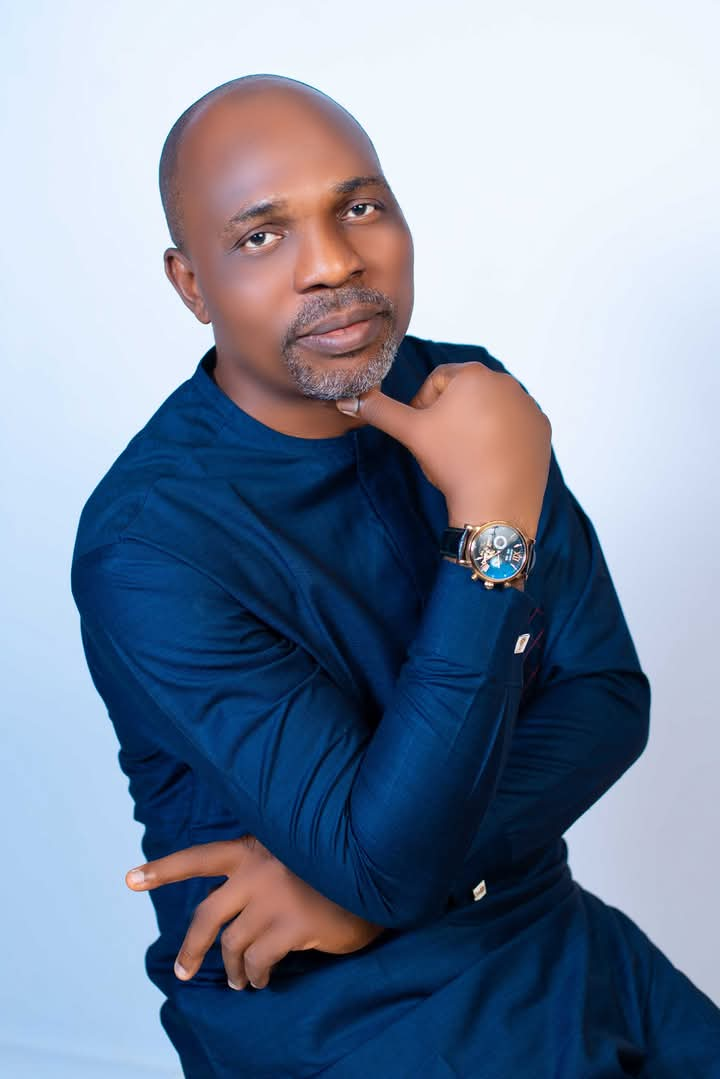Awude Speaks: Electoral Reforms, Coalition Politics, and the Future of Nigeria’s Democracy.

Dayo Awude was a commissioner in Ondo State and the deputy governorship candidate of the Labour Party (LP) in the last governorship election in the state. In this interview with YINKA OLADOYINBO, he speaks about election management in Nigeria, the emerging coalition and opposition parties in the country. Excerpts:
As someone who has participated in and contested elections before, what is your take the Nigerian our electoral system?
The electoral system in Nigeria still leaves a lot to be desired. This covers a wide spectrum of the electoral process, ranging from party administration and politics to the operations of the Independent National Electoral Commission, (INEC)
To start with, the Nigerian electoral system is too expensive and only gives room for moneybags. The cost of collection of forms at the party level should be regulated, and INEC should enforce its spending benchmarks for the various elective positions. The actual electoral process should give room for more transparency. Election results should be transmitted electronically as people are voting. This will eliminate rigging and ensure that the people’s choices triumph. This will reduce litigation to the barest minimum. The option of electronic voting should also be made available for Nigerians. People should be allowed to vote electronically. This will drastically reduce the influence of money on what has become our cash-and-carry elections. The Electoral Act should be reviewed to include the conclusion of all election litigation processes before anyone takes office. It’s against the principle of natural justice for anyone to be sworn in while their case is still in court. That confers on such a person undue advantage. In Kenya, for instance, presidential election disputes are concluded within a month after the election, and before the president takes office. That should be done in Nigeria, where we have about three months between the election and inauguration.
Are there other aspects of the Electoral Act you think should be reformed?
I have mentioned some of them already. Party administration should be looked into, such that parties are not allowed to commercialise the process of candidates’ emergence. Imagine somebody having to pay 50 million naira to obtain a form to contest governorship election. The amount of money required to prosecute election in Nigeria is too much. The general cost of prosecuting elections should be brought down considerably. Electronic voting should be allowed while electronic transmission of results is made mandatory, to ensure greater transparency of the process. Election litigations should be completed before the inauguration of any candidate.
There have been arguments/debates over the appointment of INEC chairman and the state REC, how best do you think this can be resolved as some are saying the president should be stripped of the power to appoint?
It is neither here nor there. I think what is important is for us to be sincere and committed to building strong systems in our country. If we say the President should be stripped of that responsibility and give it to another, the Nigerian factor could still play out. We must do away with selfishness and the Nigerian factor in us.
On the surface, one might be tempted to say that it is unfair for the President, who is an interested party in an election, to be the one to nominate INEC Chairman and Resident Electoral Commissioners, REC, especially where the National Assembly does not seem to exercise its independence. We all know that the nominees of the president for positions are hardly rejected in Nigeria. I think the National Assembly should be strengthened to exercise its independence, especially as it relates to the appointment of INEC officers. If the President must be stripped of this assignment, the National Judicial Council, NJC, should be saddled with the responsibility of recommending three names, from among retired justices, Permanent Secretaries/technocrats, and so on to the National Assembly, as against the current practice of sending just one name for screening. The National Assembly will then select one of them by a two-thirds majority. This voting must never be done by voice vote. Then the name of the person so selected will be sent to Mr. President for approval. The process of removal, too, should follow a similar pattern. No one man should have the power to remove INEC officers, especially the Chairman.
You contested the last election on the platform of the Labour Party. What led to that decision, and are you still a member of the party?
Yes, I took a shot at the Alagbaka Government House as a running mate to Barrister Olusola Ebiseni, on the platform of the Labour Party, because I believe we could add value to the system, having garnered the requisite experience from the positions we have held, including being cabinet members in the state. Unfortunately, the internal crises in the Labour Party were exploited by some powerful forces and that robbed us of that opportunity. Everybody attested to the fact that we had the best ticket in that election. We wanted to reenact the Labour Party’s performance in the state, under the Olusegun Mimiko administration. Incidentally, my principal and I were commissioners in that government. We knew what to do and where to pick things from. Most of the legacy projects of the LP government were already abandoned. The Mother and Child Hospital, which provided free healthcare for pregnant women and children under five years, had become heavily commercialized and become a shadow of itself, the Free Shuttle Buses conveying students to school free of charge had been taken off the roads, all our quick-win projects had been neglected, tuition in our tertiary institutions had been jacked up by over 800 per cent, our football team, the Sunshine Football Club, which was among the best clubs in the country, and had five of its players as regulars in the Super Eagles under our administration, and represented Nigeria twice at the continental level, began to take a back seat and now the team has been relegated to second division. These and so many more of the things that gave our people succour and comfort had been cancelled. We wanted to bring back those good times and bring comfort to our people. Unfortunately, it became for us a contest that never was, as our names were struck off the INEC portal, less than 24 hours to the election. I believe the morning shall come and that opportunity will present itself again. As of today, there is still some crises within the Labour Party. No one can say for sure which direction things are heading. I am still watching developments, and I will take a decision on my political future soon.
How do you view the emergence of the new coalition platform, that is, the ADC?
I believe in a multiparty system, and to that extent, I will support the emergence of any formation that will challenge the ruling party. A good opposition enhances the performance of the ruling party. When there is no competition, there is a likelihood that the government will be low on performance and take the people for granted. The APC formed a formidable coalition and wrestled power from the then-ruling PDP in 2015. We had coalitions even in the first republic. So, political coalition is not new to our electoral system, and to me, it is always a welcome development for our multiparty democracy to thrive.
However, the present coalition is a bit different from what we had in 2015. The APC was a coalition of mainly political parties, the ACN, CPC, APP, a faction of the PDP known as the nPDP, all came together to form a new party, but what we have today is a coalition of individuals adopting an existing party, the ADC. The homophonic semblance in the names of the parties is a challenge for the coalition. Also, there are some members of the existing party, the ADC, who are opposed to the coalition using the party as a platform. However, I believe the coalition could put up a good show if they pick the right candidate and do not allow personal ambitions to divide them. The reality is that putting up a good show is different from defeating the incumbent. Unlike the PDP, which lost five of its governors and, by extension, five states in 2015, the APC hasn’t lost any of their governors or states so far. In fact, the APC is having some opposition governors joining them. So, the coalition will have a hard nut to crack in the Tinubu’s APC administration.
The opposition in Ondo state seems to be docile and has conceded the political space to the APC. What is your view about this?
If you say the opposition is not doing as much as it should, I may agree with you, but to say that it is docile wouldn’t be a fair assertion. Unfortunately, our electoral system has become less and less of issues, and more and more of money. Money politics has taken over as the electorates are likely to go with the highest bidder during elections. So, the idea of constructive criticism becomes very tiring in this situation. Secondly, opposition politics requires a lot of funding, which is often not available to opposition parties. However, in Ondo State, we still have some level of credible opposition to the ruling government. Don’t forget that the Ayedatiwa government is still relatively new, and I believe it is still in its honeymoon season. I am sure as the days go by, the opposition will beam their searchlights into the perceived misdeeds of the government. Maybe this is just a season of respite for the ruling party.
How best do you think the opposition can challenge the APC for power in the next election in Ondo State?
Any serious challenge to the government at any level requires a very intentional approach. In our clime, it is not easy to unseat an existing government. I must also say that it is very difficult to unseat a performing government. I hope the Ayedatiwa administration will do its best for the people of Ondo State so as to consolidate its footing in the hearts of the people. Good governance is what we need. However, if the opposition must wrestle power successfully in Ondo State, it must be prepared on all fronts, particularly in the area of developing a welfarist manifesto for the people and must be ready to match the ruling party wits for wits.
